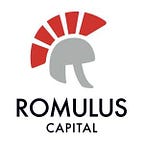5 Ways to Build, Not Bet On, Your Company
Over the past six months, we’ve been reflecting on our first decade as a firm. As we’ve learned and grown over the past 10 years, certain aspects of our company and culture have changed, while others have stayed the same. If you’ve seen any pattern emerge as you’ve followed our journey, it’s this: we’re in the business of building companies, and that remains the core of everything we do.
An engineering mindset is one of our overarching values. With every portfolio company, we think about building from the foundation up, rather than retrofitting a business to a grand idea of what it could or should be. Our hunger to help build lasting entities is a key differentiator for our firm, and founders consistently point to our willingness to work in the weeds with them as a reason for their partnerships with us.
We only work with entrepreneurs who are as passionate about building as we are. We work with founders who actively want partnership in their entrepreneurial journeys — who are more interested in playing the long-game, who don’t want an investor who is here today, gone tomorrow, and who weighs value creation and strategy over fast cash. We think focusing on building — even if it might take longer to ramp up — is key to creating lasting entities.
That means that in the past decade, we’ve learned a thing or two about building companies as we’ve built our own firm. Here are five ways to build (not bet on) your business.
1. Be prepared to take the scenic route
Getting to product-market fit is almost always a very windy road. For innate entrepreneurs, that “scenic route” can yield a fun and fruitful journey, but it also requires intense discipline, resilience, and honesty with oneself.
Though the concepts of grit and learning from failure are popular, only a certain type of investor is actually supportive of the time and effort it can take to “fail your way” to product-market fit. We believe that getting the product right — regardless of how long that takes — is incomparably better than getting it wrong. If a particular use case isn’t working, we think it’s better to fail fast and pivot, so you can build a product that is much more likely to last.
2. Customers solve a lot of problems
As an entrepreneur, you can (and will) make many mistakes — but if you have customers, you have a cushion. You can have the wrong product, the wrong executives, and the wrong market, but if you have customers, you can survive anything. Without them, you’ll quickly find yourself out of options — even with the best product, market, or team.
That still means that companies should be choosey about their first few customers, but it’s important to note that any customer is worlds better than none at all. If you’re seeing to build a business, prioritize your customers.
3. Don’t make key executive changes too late
In 10 years of business-building, we’ve found that companies almost always make key executive changes too late. The person who founded the company may not remain its best leader. As time passes and the business changes and grows, the founder might slot better into a different role. That can be difficult to accept, particularly when a business is as much an emotional investment as it is a financial one for founders.
It’s human nature to give people multiple chances, but if you want to build a business, you can’t afford that luxury in the early stages. Whenever our companies have made executive changes, they’ve looked back and wondered why they hadn’t done so sooner.
4. Keep innovating on product, even as you scale
When you reach the growth stage, you’ll encounter investors who tell you to focus solely on sales and marketing — to the exclusion of everything else in your business, including product development. But great business-builders never stop thinking about their product roadmaps and how they can keep innovating to create the best possible experience for customers at every turn.
That’s one of the reasons we as a business-building firm are so attracted to companies with industry-leading technology or science at their cores. Having an unnatural technical advantage is a major driver of value, which should never be overlooked.
5. Remember: you’re human
Your humanity is a critical part of the foundation of your company. It’s not just important — it’s critical to have an authentic culture and values from day one. Your ability to connect with other humans — whether they’re investors, customers, or team members — helps every aspect of your business. The companies that build the strongest foundations do so with people in mind from the beginning.
As we approach the 10th anniversary of Romulus Capital in August, we’re posting 10 blog posts — one per month — that reflect on the past decade. You can catch the rest of the posts in the series here:
Part 1: Romulus at the Seed Stage
Part 2: 2008 vs. 2018
Part 3: Growing in Globalism
Part 4: From Pub Trivia to Presto: 10 Years of Business-Building with Romulus
Part 5: Partner Neil Chheda’s Entrepreneurial Journey
